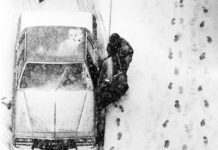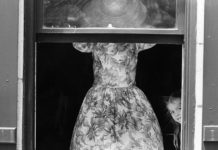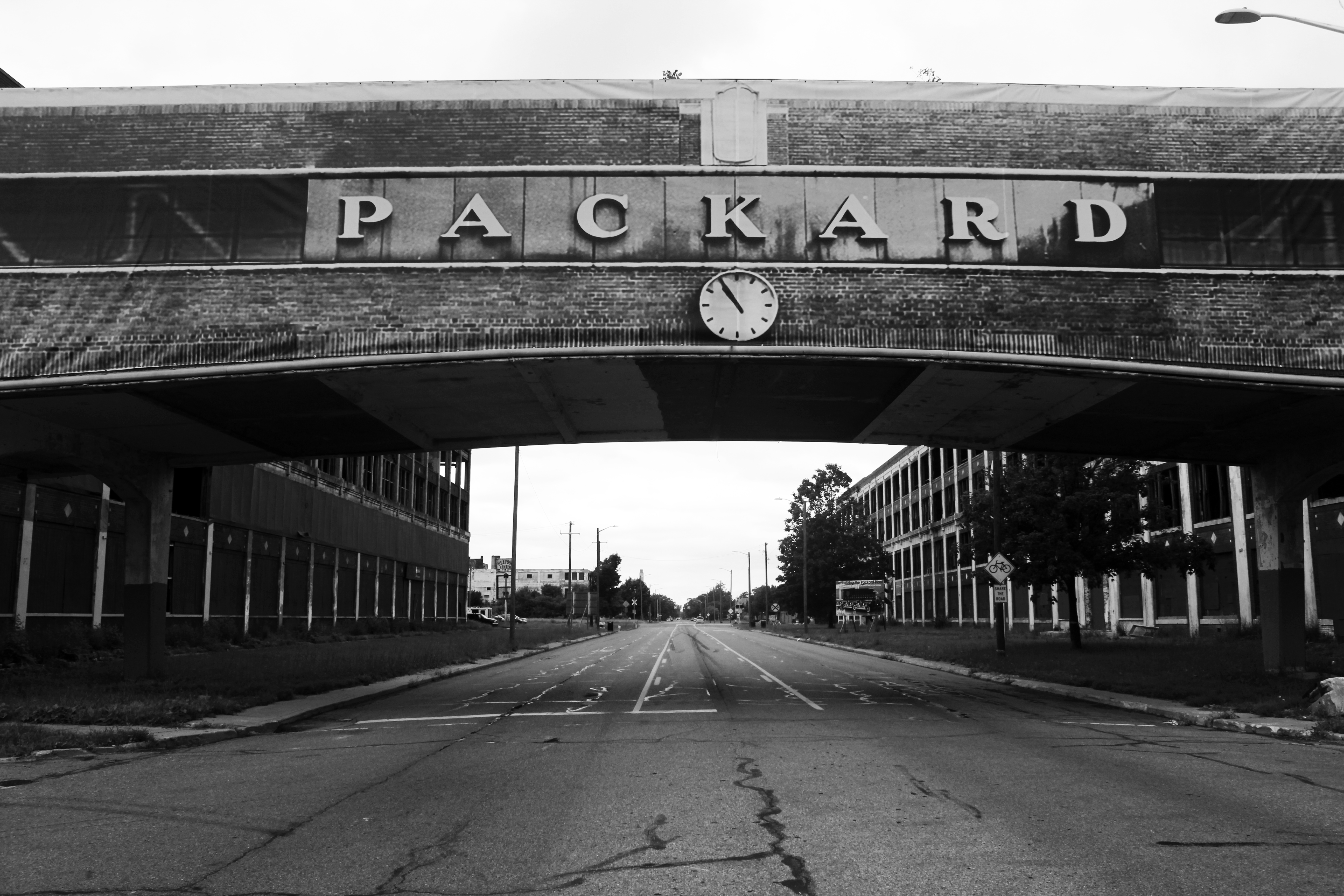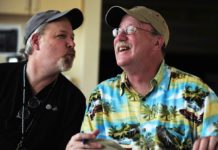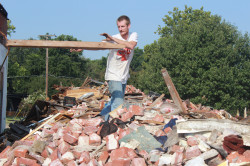 ©Scott Sines, greenrocketnews.com
©Scott Sines, greenrocketnews.com
You gotta earn it on the Delta. Hammering mortar off bricks in the Delta sun is not for everyone. On a hot September day Keith Forester is checking on a crew of three local men he’s hired to reclaim bricks from a collapsed building. He acknowledges that, yes it’s very hot, banters with the crew, then rides them a little, “Don’t wear out the seats of your pants sitting in the shade over there.” He knows they may, or may not work the whole day. Still some work will get done because they need the money.
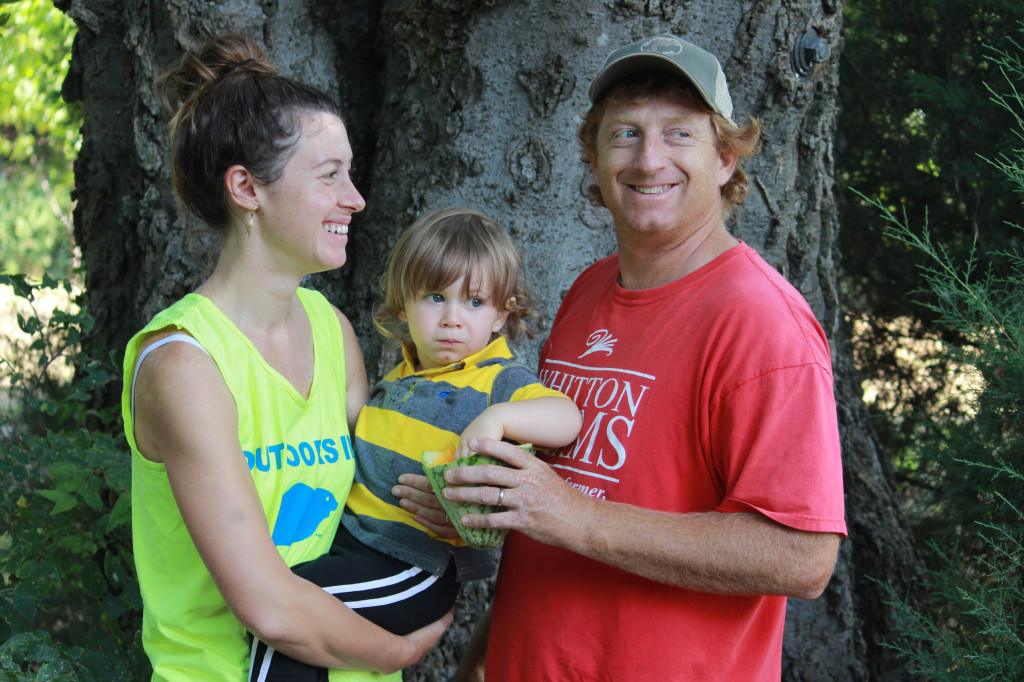 And, Forester has plans for those bricks. He and his wife Jill are developing four buildings in the heart of downtown Tyronza smack in the middle of the Arkansas Delta. Two of the buildings have been leveled. One is in bad shape but can be saved. Maybe it will become a pecan processing plant.
And, Forester has plans for those bricks. He and his wife Jill are developing four buildings in the heart of downtown Tyronza smack in the middle of the Arkansas Delta. Two of the buildings have been leveled. One is in bad shape but can be saved. Maybe it will become a pecan processing plant.
The last building is on its way to becoming a restaurant. A new roof and insulation are in place. It has a thick ring of glass block around the top. Bricks reclaimed from the demolished buildings and the corrugated steel roofing will set the atmosphere. The site of the demolished buildings will be the parking lot. The menu will be tailored to a farmer’s needs. Lunches will be quick and big. Dinners will feature pizzas, rotisserie chicken, and seasonal dishes in the restaurant, or carryout, or in the drive-thru. Everything, including the building will be totally Tyronza.
The Forester’s think the business will work. They started with a stand at the Memphis Farmer’s Market and grew their business from a small family farm into the Trolley Stop, a busy downtown Memphis restaurant and store featuring locally grown produce, meats and dairy products. It’s also one of the pick up points for their Community Supported Agriculture program. Depending on the season they employ about fifty people.
The combination of recycling and life-cycling is not new to the Foresters’s. They live in Keith’s grandfather’s house, which was built with materials from demolished homes in Memphis, Tennessee. “From the beams to the floors, we live in a recycled home.” They farm about nine acres of retired pasture land where Grandfather Jess allowed his show horses to graze. Today they harness that latent horsepower to grow all manner of heirloom vegetables, cut flowers, herbs, trees, mushrooms and chickens. “Everything has a use,” Keith says.
When the couple returned to the farm after college there was a big, rickety, barn in nearby Frenchmen’s Bayou. It was springtime and the farm wasn’t fully cranked up. Shingle-by-shingle and plank-by-plank Keith and a crew dismantled the barn, salvaging everything they could. He saved thousands of board feet of barn timber and corrugated steel roofing. They even saved and sorted the nails. “See, some of these have square heads,” Keith notes.
Now that they’ve got bricks and boards, “the remodel” of the modest, ancestral farmhouse looms. They’ll lay the bricks from the ground to the windows. They’ll side the house with the barn-boards. “I’m going to build a tree-house right here,” Keith says nodding at an ages old Hackberry tree. “Maybe two stories.” He could build brick columns and has plenty of boards. “When I was a kid, I used to run all around this farm,” he says. Keith and Jill want their son Fox to have that experience. “Fox’s world is very big for a two-year-old,” Jill says as she cracks a fresh melon on the back of a trailer for a snack.
“All you got is what’s here. You got the soil and whatever was left for you. But you gotta make it happen. You gotta earn it everyday,” Keith says.




